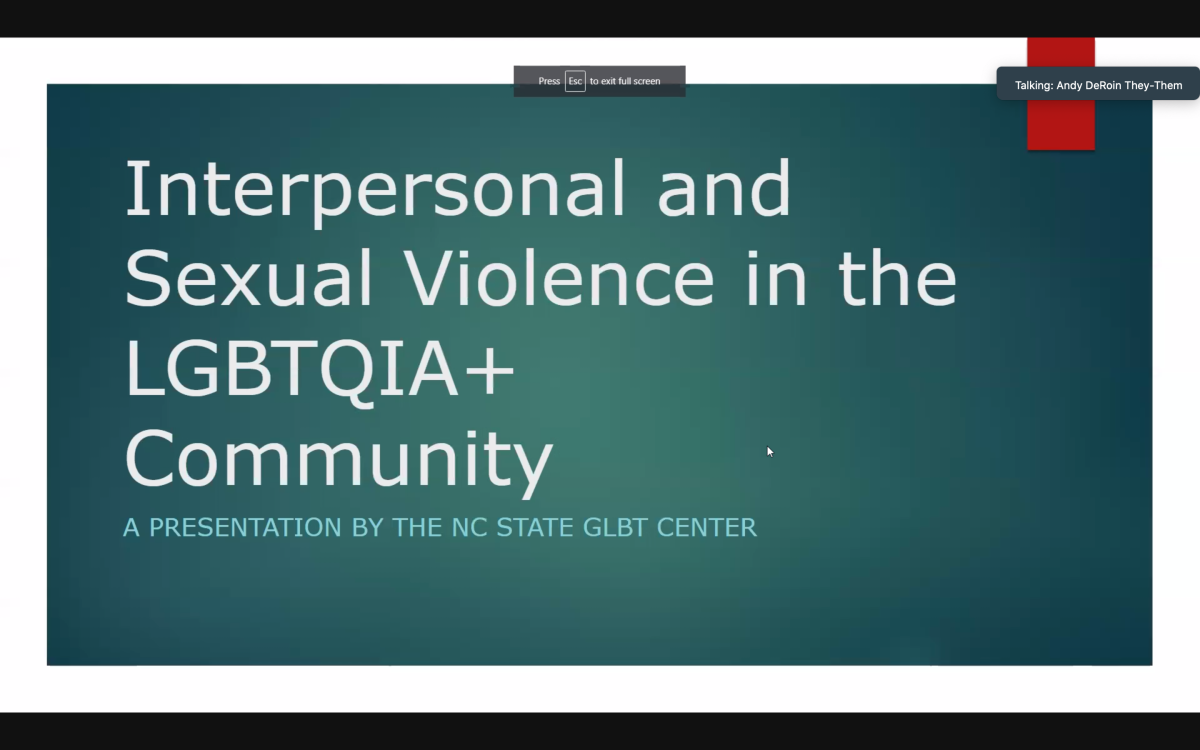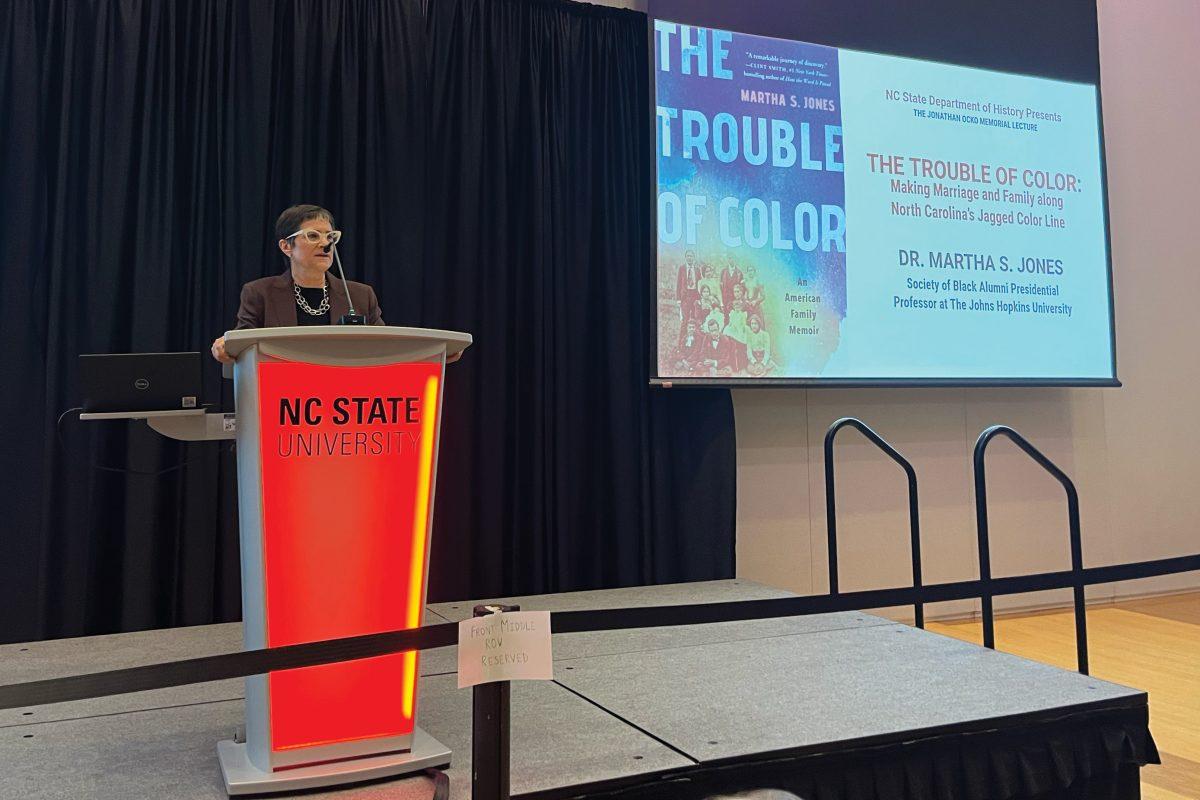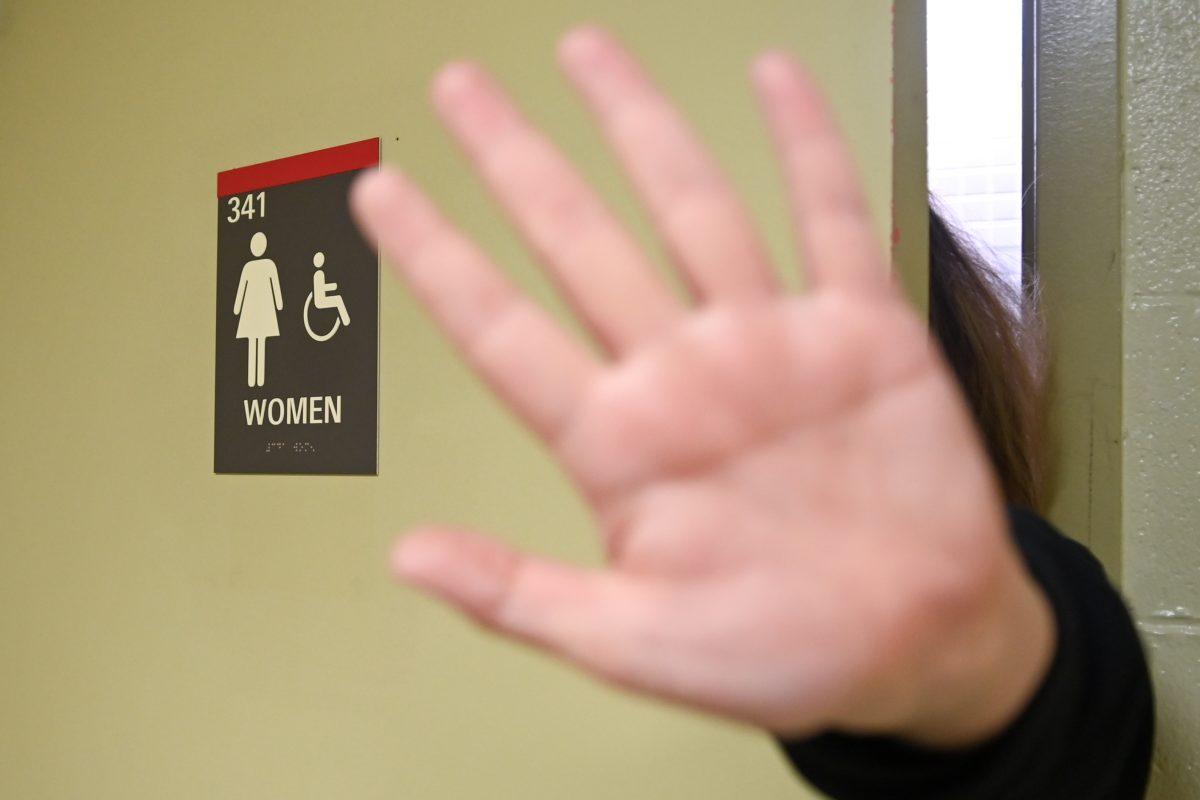Editor’s note: This article contains reference to interpersonal violence.
On April 12, the GLBT Center held a virtual workshop on the experiences of interpersonal and sexual violence (IPV) within the GLBT community.
The workshop included defining IPV, defining specific types of IPV, how IPV affects specific groups and more. Participants were put into breakout groups intermittently to answer given questions and discuss what they know about IPV.
Andy DeRoin, assistant director at the GLBT Center, hosted the workshop. DeRoin began by defining IPV.
“IPV is a pattern of behavior where one partner coerces, dominates or isolates another, and the focus is on maintaining power and control,” DeRoin said.
DeRoin said IPV can happen within all relationship types and within all communities.
“Sometimes, the societal tropes that we kind of are socialized with tell us that IPV only looks like physical or sexual violence,” DeRoin said. “Sexual violence mostly between strangers and physical violence between long-term committed partnerships. But there is a wide range of all of those. This definition of IPV, I think, is one thing I want to leave you with, that it’s able to happen in any type of relationship and does happen in our communities.”
DeRoin said signs that someone may be an IPV survivor can look similar to a person showing general signs of stress.
“Recognizing signs in survivors can look like a potential change in self-esteem,” DeRoin said. “Even if they seemed confident before, you might exhibit changes in the personality shifting from being outgoing to feeling withdrawn or appearing withdrawn, signs of anxiety, depression and suicidal thoughts, experiences and stress-related problems to like more headaches, difficulty sleeping, stomach pains.”
DeRoin presented a series of statistics about IPV within the GLBT community, saying the statistics had not changed much since 2013. In specific, they pointed out that transgender survivors were 1.9 times more likely to experience physical violence, a statistic that hasn’t changed since 2013.
“I’ve updated some of our stats since then, but this 1.9 keeps showing up especially for transgender survivors,” DeRoin said. “I think nothing drastic has changed since 2013. This bump in derogative discrimination, harassment and violence is not something that has changed over time either.”
In one of the breakout groups during the workshop, participants were asked what kind of barriers students might face when trying to find support for IPV. Madi Moser, administrative support specialist and student services coordinator for molecular and structural biochemistry and participant at the workshop, said students may feel uncomfortable disclosing sensitive information to people they do not know, especially if they’ve had negative experiences in the past.
“I’m thinking about it from a student perspective, having to out themselves as a means of discussing the violence that they have been through with people that they are not familiar with,” Moser said. “And if they have past experiences with outing themselves not going well, that trauma could carry through and they would potentially want to internalize that and not work through it again or go through that again to get the help that they need with whatever they’re dealing with.”
When this idea was later brought up again to the whole group, DeRoin said this is a hurdle students often face when seeking support.
“That is a barrier, that they have to kind of take that initiative,” DeRoin said. “It’s not something that’s readily accessible all the time. Or maybe it didn’t go the way that they wanted it to or needed it to. We’ve seen that a lot across a variety of different challenges that someone might be facing, including IPV.”
DeRoin said they want people to know IPV can develop over time and escalate. They said people should be aware of how they feel within their relationships and there are resources available to them on campus if they want to talk to someone about them.
“I think I want people to know that if they’re feeling like they have to do something in a relationship, that it’s at least worth that question,” DeRoin said. “And that there are people on campus who are here to non-judgmentally help explore that question.”
Learn more about the GLBT Center and find out about other workshops they have planned through its website.
If you or someone you know is experiencing relationship violence, sexual violence, stalking or any other form of interpersonal violence and are in need of advocacy services, the NC State Women’s Center has trained advocates available to offer crisis intervention, emotional support, resources and referrals. Students can contact the 24/7 Sexual Assault Helpline at 919-515-4444 or email ncsuadvocate@ncsu.edu to schedule an appointment with an advocate.
Advocacy services through the NC State Women’s Center are available for all students inclusive of all gender identities and sexual orientations.
For more information on advocacy services, please visit go.ncsu.edu/supportsurvivors. If you would like to talk to a confidential resource, you can also connect with the NC State Counseling Center at 919-515-2423. You may also visit go.ncsu.edu/safe for additional information on resources and reporting options.












